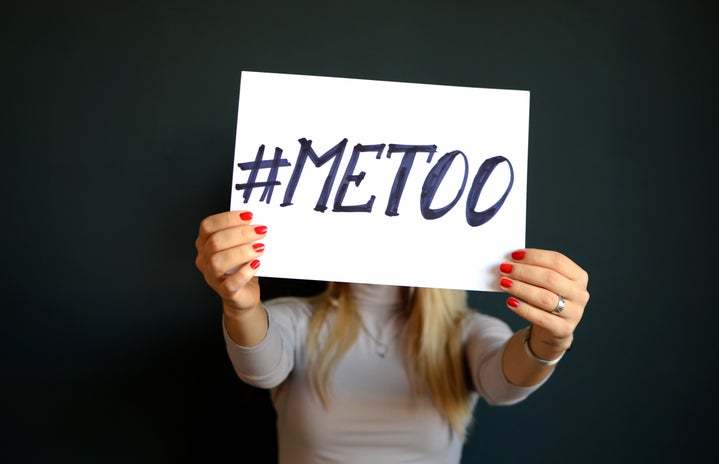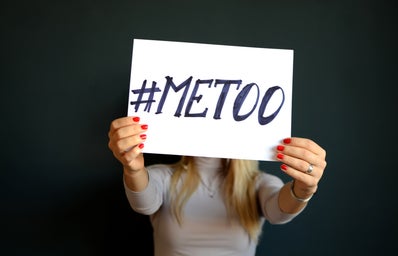Content Warning: Sexual Assault
*In this article survivors are commonly referred to as women. Men and non-binary people are also victims of sexual assault. Women are referenced more frequently since cultural narratives often surround women survivors.*
Often when people think about sexual assault they think about forced sex by strangers or being drugged and date-raped. The reality is that not all sexual assault is rape and 80% of rapes are committed by someone known to the victim.
There are many misconceptions about sexual assault that cause stigma, shame and discourage survivors to come forward. Sexual assault isn’t limited to forced penetration, and choosing to view certain types of assault as “worse” or “more valid” is extremely harmful to survivors. In fact, about 75% of instances of sexual assault go unreported and .5% of perpetrators will go to jail or prison. While it cannot be proven, it appears as if many survivors do not report their assaults due to shame, embarrassment or simply fear that they will have to emotionally relive the trauma and their perpetrator will walk free.
Understanding sexual assault begins with understanding consent. There are many ways to learn and understand consent, but according to Planned Parenthood, sexual consent is an agreement to participate in sexual activity and is like FRIES. It is Freely given, Reversible, Informed, Enthusiastic, and Specific. The definitions differ by state, but the fact remains that any sexual activity with a lack of consent is sexual assault or rape.
Through this understanding of consent, these misconceptions are quickly debunked. The issue is that many people still have these misconceptions and end up saying or asking harmful things to survivors.
“If you didn’t want to have sex, why did you get drunk?”
Women hear phrases like this far too often which can lead to doubt and shame about their own experience. Choosing to drink and/or get drunk does not mean someone is looking for or asking for sex. There appears to be a blurred line as to if those who are drunk can legally consent to sex, as many states separate intoxication and incapacitation, but according to organizations like Planned Parenthood and RAINN, you cannot consent under the influence of alcohol. If someone is sexually assaulted and shares that they were drunk that does not take away the fact that they were assaulted.
Too often in movies and TV shows we see men intentionally get a girl drunk so that she will have sex with him. These scenes are often framed in fun way where alcohol allows one to lose their inhibition, but in reality, this loss of inhibition is simply a sign that one cannot consent. Therefore, intentionally getting a girl drunk in order to have sex with her is sexual assault.
“Why didn’t you say no?” “Why didn’t you fight back?”
A commonly held myth about sexual assault is that not fighting back or not saying no is equal to consent. Freezing, also known as tonic immobility, leading to the lack of capacity to fight back and/or say no is actually a common response to trauma. Someone experiencing a traumatic event such as sexual assault may be physically unable to fight back or say no, or they may believe it is safer to not fight back. Regardless of the reason why a survivor did not fight back or say no, if there was no consent the action was sexual assault.
“But you’re dating.” “You had sex with him before.”
It remains shocking that this needs to be said in 2021, but dating someone or having a prior sexual history with someone does not mean you are consenting to sexual activity with that person forever.
“What were you wearing?”
This question is probably the most common question that survivors are asked. Rather than focusing on the action of the perpetrator this question focuses on and blames the survivor. Like the alcohol question, this assumes that people are asking for sex, sexual assault, and/or rape based on their day-to-day decisions such as getting dressed or going out to drink. Often survivors are told that they are “asking for it” by wearing certain clothing or makeup. This can cause people to stay silent about their assault as well as affect how they choose to dress on a daily basis.
All of these invalidations of assault, among others, continue the cycle of sexual violence and cause survivors to stay silent and not report their assaults. And when survivors are told time and time again that they are overreacting or making up their experiences, they may begin to believe it themselves.
“Maybe I shouldn’t have had that drink.”
“If I didn’t have that drink nothing would have happened.”
“Maybe since I was drunk nothing bad happened. I’m just overreacting.”
Unfortunately, survivors are often placed in situations where they begin to believe that their experiences aren’t real or valid. By failing to recognize all forms of sexual assault and placing the blame on survivors rather than perpetrators, the cycle of sexual violence continues.
Nobody wants to be assaulted or raped. Nobody wants to be gaslit. Nobody wants to be made as if their experience isn’t real or valid. Nobody wants to have PTSD. Nobody wants to have to cope with the aftermath of trauma. However, 1 in 6 American women and 1 in every 33 men have been the victim of an attempted or completed rape in their lifetime with 70% of them experiencing moderate to severe distress and 33% of those women contemplating suicide.
If we continue to invalidate survivors’ experiences then we continue to harm so many people. The least we can do is be there for survivors by listening to them and believing their stories.



